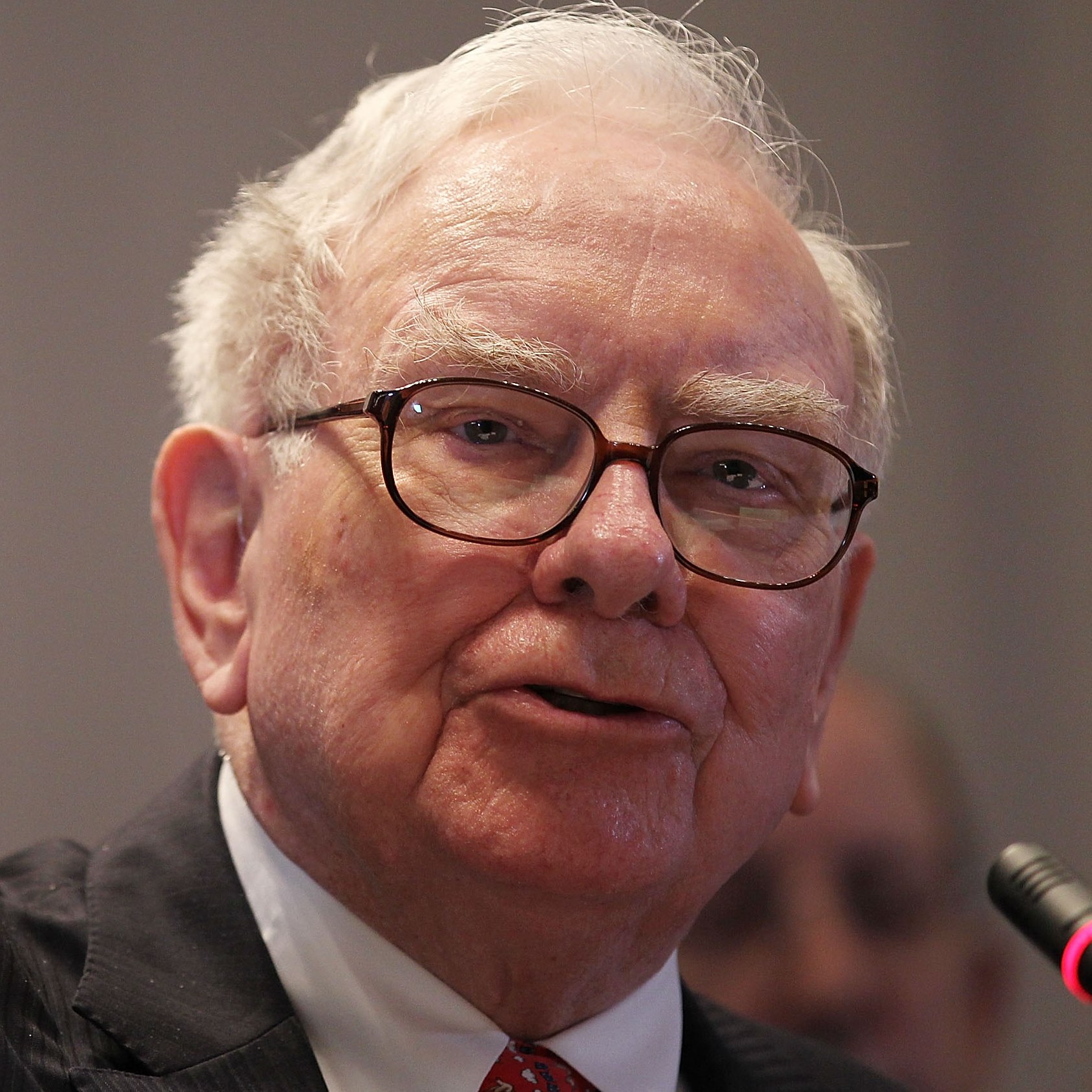
Berkshire Hathaway Inc. (NYSE: BRK-A) has released its public equity holdings as of March 31, 2016. This is perhaps the largest company of them all among those watched on Wall Street. If Warren Buffett is considered the greatest investor of the modern era, and if he has held the title of the world’s richest man, then maybe he knows a thing or two.
24/7 Wall St. has tracked Buffett and Berkshire Hathaway’s investments for years. The more recent observations about Buffett’s portfolio changes at the end of 2016 and in the start of 2017 have been that the number of changes has been nothing short of astonishing.
Buffett and his team of portfolio managers had public equity holdings of $161.87 billion as of March 31, 2017, in their 13F filing with the U.S. Securities and Exchange Commission. This was up from $147.98 billion at the end of 2016 and at $115.46 billion as of December 31, 2015, but it is the equity value of the investment portfolio only. It does not include any of the public debt and convertible securities held by Berkshire Hathaway.
Investors who have chased Warren Buffett’s investments now need to take into consideration that Ted Weschler and Todd Combs have been making more aggressive investments on behalf of Berkshire Hathaway. It was these two portfolio managers, rather than Buffett himself, which decided in the third quarter of 2016 to make a multibillion investment into the major airline stocks.
There were three major changes that already had been telegraphed or explained by Buffett himself in recent weeks. He recently confessed that he sold about 30% of his International Business Machines Corp. (NYSE: IBM) stake and he has increased his position in Apple Inc. (NASDAQ: AAPL). Buffett also admitted earlier in 2017 that Amazon and online retailing elsewhere were top reasons for why he sold almost all his shares in Wal-Mart Stores Inc. (NYSE: WMT).
Buffett has owned most of his top holdings for many years. There were five positions that each had $10 billion profits earlier this year. The rest of Buffett’s holdings and details on the respective changes are presented below.
Wells Fargo & Co. (NYSE: WFC) was listed as 479,704,270 shares, the same count since last September. It had been documented in 2016 that Buffett asked the SEC to be allowed to increase his stake above the 10% threshold, and Buffett did not sell any Wells Fargo shares after the account-opening scandal and during the Stumpf exit.
International Business Machines Corp. (NYSE: IBM) was a stake that Buffett already telegraphed selling down, and the March 31, 2017, stake was down to 64.56 million shares. It had previously been a stake of 81.232 million shares at the end of 2016.
Apple Inc. (NASDAQ: AAPL) was already a larger stake at the end of 2016, but we knew Buffett had increased it. As of March 31, 2017, that stake was up to 129.357 million shares, worth almost $18.6 billion. The prior Apple stake was 57,359,652 shares, up from just 15.227 million in the prior quarter.
Three more of Buffett’s long-term giant stakes that remained static were as follows:
- Coca-Cola Co. (NYSE: KO) was the exact same stake of 400 million shares. This position has remained static, and Buffett has defended his stake for years.
- American Express Co. (NYSE: AXP) was the same 151.61 million shares, a position that remains perpetually static. Buffett has owned Amex for so long it may be cheaper for him to just hold rather than pay capital gains.
- Kraft Heinz Co. (NYSE: KHC) was listed as the same 325,634,818 shares and was previously a stake from the 3G Capital deal. The value in the portfolio was $29.57 billion.
Buffett’s portfolio managers did make some rotational changes in their airline holdings, but they still own all the same airlines:
- American Airlines Group Inc. (NASDAQ: AAL) was a higher stake at 49.278 million shares. That stake was previously at 45.54 million shares, after having been raised from 21.77 million shares.
- Delta Air Lines Inc. (NYSE: DAL) was listed as 55.02 million shares, which appears to be lower than the 60.02 million shares reported at the end of 2016.
- Southwest Airlines Co. (NYSE: LUV) was a larger stake at 47.66 million shares, versus a stake at the end of 2016 of just over 43.2 million shares.
- United Continental Holdings Inc. (NYSE: UAL) was 28.95 million shares at the end March, the same stake as on the last day of 2016.
Phillips 66 (NYSE: PSX) was the same 80.689 million shares in March as at the end of 2016. The stake was a Buffett pick of his own and had been raised in 2016.
Sirius XM Holdings Inc. (NASDAQ: SIRI) was a larger stake of 172.32 million shares on March 31, 2017. This was up from 166.639 million shares at the end of 2016. Keep in mind that these are the direct shares, but Berkshire Hathaway owns 32.55 million shares of the Liberty shares tracking Sirius XM as well.
Other key holdings and portfolio changes of Berkshire Hathaway have been outlined below:
Axalta Coating Systems Ltd. (NYSE: AXTA) was the same stake of 23.324 million shares, after having been listed as a new position in 2016 of 20 million shares.
Bank of New York Mellon Corp. (NYSE: BK) was a much larger stake of 33.01 million shares in March of 2017, up from 21.671 million shares at the end of 2016 and after having been raised in 2016.
Charter Communications Inc. (NASDAQ: CHTR) was 9.443 million shares, which was the same stake as the end of 2016, though the size has fluctuated.
Costco Wholesale Corp. (NASDAQ: COST) was the same stake at 4,333,363 shares.
DaVita Inc. (NYSE: DVA) was the same 38.565 million shares, but this had been on an upward trend prior to Berkshire Hathaway entering into a standstill agreement not to buy more than 25% of the company.
General Electric Corp. (NYSE: GE) was the same stake of 10.585 million shares. It was raised in 2014 and had been telegraphed before because of the warrants.
General Motors Co. (NYSE: GM) was the same stake of exactly 50 million shares, but this previously had been raised from 41 million shares last year.
Goldman Sachs Group Inc. (NYSE: GS) was the same stake of 10.959 million shares, but this had been as high as 12.631 million shares prior to the end of 2015.
Graham Holdings Co. (NYSE: GHC) remains the same tiny stake of 107,575 shares in the remains of the Washington Post breakup.
Johnson & Johnson (NYSE: JNJ) was the same tiny stake of only 327,100 shares, but Buffett watchers know this is a leftover bit from a much larger stake in years past.
Liberty Media Corp. (NASDAQ: LMCA) was again listed as a Buffett holding, but there were the Liberty Global shares under Class A and Class C shares, and then there were 32.55 million shares under the Sirius XM trackers.
M&T Bank Corp. (NYSE: MTB) was the same position at 5.382 million shares, and this stake has been static in size for quite some time.
Mastercard Inc. (NYSE: MA) was the same 4.934 million shares in March as at the end of 2016. While unchanged from prior quarters, the Mastercard stake was 5,229,756 shares at the end of 2015.
Mondelez International Inc. (NASDAQ: MDLZ) is the same position again at just 578,000 shares, handily lower than in the past and dating back to the Kraft breakup.
Monsanto Co. (NYSE: MON) was the same stake of 8.04 million shares, but that had recently been considered a new stake in 2016.
Moody’s Corp. (NYSE: MCO) was the same position of 24.669 million shares yet again, but this stake is much lower than in years past.
Procter & Gamble Co. (NYSE: PG) is still a tiny stake of just 315,400 shares, same as in March and in April. This stake has come way down over time, versus before the Duracell swap. P&G had once peaked at 96.3 million shares in the Buffett stocks.
Restaurant Brands International Inc. (NYSE: QSR) was the same stake at 8.438 million shares. As noted previously, this stake has been much larger if you consider the $3 billion in perpetual preferred shares Buffett received.
Sanofi (NYSE: SNY) was the same position at 3.905 million American depositary shares.
Torchmark Corp. (NYSE: TMK) the same stake at 6.353 million shares.
Twenty-First Century Fox Inc. (NASDAQ: FOXA) was no longer listed as a stake for Berkshire Hathaway.
United Parcel Service Inc. (NYSE: UPS) was the same position of just 59,400 shares, which is way down from 2012.
U.S. Bancorp (NYSE: USB) was the same size of 85.06 million shares in March versus the end of 2016. This stake had been raised slightly before the prior quarters (it was 80.09 million shares at the end of 2014).
USG Corp. (NYSE: USG) was the same stake at just over 39.002 million shares, but this had been raised prior to the end of 2014.
Verisign Inc. (NASDAQ: VRSN) was the same 12.952 million share stake, but that had been reduced previously from 13.044, after having previously grown in 2014.
Verizon Communications Inc. (NYSE: VZ) was practically eliminated previously, but this remained the same 928 shares, worth just $45,000, at the end of March. This stake was as much as 15 million shares during most of 2016.
Verisk Analytics Inc. (NASDAQ: VRSK) was the same position at 1,563,434 shares, but that is lower than in prior quarters before the last quarter.
Visa Inc. (NYSE: V) was the same size stake of 10.562 million shares that it was at the end of the third quarter, but this stake is up from 10.239 million shares at the end June and up from 9.885 million shares in 2015.
WABCO Holdings Inc. (NYSE: WBC) was a lower stake at 2.908 million shares in March of 2017. This is down from 3.368 million shares at the end of 2016, but the size of this stake has fluctuated through time.
Wal-Mart Stores Inc. (NYSE: WMT) stake, already known to be lower than in the past, was still the same 1.393 million shares at the end of March. That stake had been cut down to about 12.9 million shares at the end of September, and had been as high as 60.385 million shares during 2015.
100 Million Americans Are Missing This Crucial Retirement Tool
The thought of burdening your family with a financial disaster is most Americans’ nightmare. However, recent studies show that over 100 million Americans still don’t have proper life insurance in the event they pass away.
Life insurance can bring peace of mind – ensuring your loved ones are safeguarded against unforeseen expenses and debts. With premiums often lower than expected and a variety of plans tailored to different life stages and health conditions, securing a policy is more accessible than ever.
A quick, no-obligation quote can provide valuable insight into what’s available and what might best suit your family’s needs. Life insurance is a simple step you can take today to help secure peace of mind for your loved ones tomorrow.
Click here to learn how to get a quote in just a few minutes.
Thank you for reading! Have some feedback for us?
Contact the 24/7 Wall St. editorial team.

 24/7 Wall St.
24/7 Wall St.



